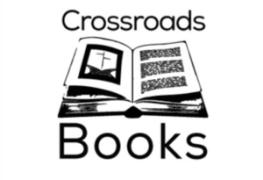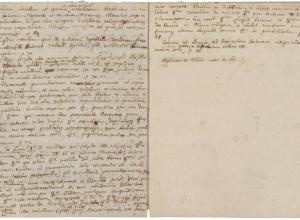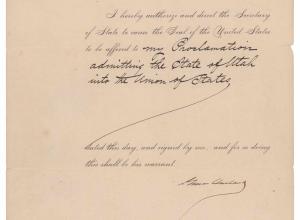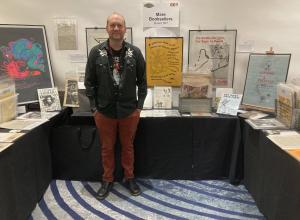Unknown Draft of Schumann Piano Masterpiece to be Offered at Bonhams
Bonhams is to offer an extensive draft of Robert Schumann's 1837 piano masterpiece Fantasiestücke Opus 12 - written in the composer's own hand - at the Fine Books and Manuscripts sale in London on Tuesday 27 November. The draft, which is unknown to music scholars, is estimated at £200,000-300,000, and was taken out of Germany months before the outbreak of World War II by the distinguished German jurist Dr Moritz Sprinz.
Bonhams Books and Manuscripts specialist, Simon Roberts said, "This major discovery provides a fascinating insight into Schumann's working methods, and the creative decisions he took in completing the version of Fantasiestücke we are familiar with today. The work's publication heralded an intense burst of activity that produced in 1838 two of his greatest compositions for piano, Kinderszenen, and Kreisleriana."
The 14-page manuscript was completed in July 1837 and given by Schumann to the composer Gustav Schmidt in August the same year. It was acquired by Dr Sprinz shortly before he left Germany in February 1939.
The work in its published form is made up of eight pieces. They alternate in mood between the serious and the playful, reflecting the dual aspects of the composer's personality that he called Eusebius, representing the dreamer, and Florestan, standing for his passionate side. He had previously explored this concept extensively in Davidsbündlertänze, written earlier in 1837.
The manuscript sent to Schmidt contains six of the eight pieces from the final work and a ninth piece that was dropped at proof stage. Four pages are devoted to what became in the published work the fifth, and longest, piece - In der Nacht - and they reveal in great detail the development of the composer's initial ideas. Markings in Schumann's characteristic red crayon also show how he experimented with the order in which the pieces should be played. Although the final order appears programmatic, in fact the composer was later happy for some of the pieces to be played individually as part of a recital, even making suggestions as to which ones would be most suitable.
Fantasiestücke, refers to a collection of writings by the influential German Romantic author, E.T.A. Hoffmann, on whose work Schumann had previously drawn for inspiration. The work came at the end of a four-month fallow period for the composer and he dedicated it to the 18 year-old Yorkshire-born Scottish pianist, Anna Robena Laidlaw with whom he had become very close during that time. Schumann wrote to Robena in August 1837, saying the pieces "belong to you - and the entire Rosenthal with its romantic associations, is present in the music." (Rosenthal is the wooded area near Leipzig where the two had taken walks together).
A year later, however, Schumann wrote to his fiancée, the acclaimed concert pianist Clara Wieck, who was on tour in Austria, suggesting that the final piece Ende vom Lied was intended to evoke a happy wedding - namely theirs. They eventually married in 1840 after a lengthy court battle with Clara's father who was bitterly opposed to the match, possibly because a large part of the family's income derived from Clara's appearance fees.
Glenn Gould annotated Goldberg Variations Score
Bonhams Books and Manuscripts sale in New York on Wednesday December 5 features the score of Bach Goldberg Variations used by Glenn Gould during his 1981 recording of the work. It is extensively annotated in the pianist's own hand. Gould had recorded the work once before in 1955 when he was 22, and the notes show how much his interpretation had altered over the intervening years. His friend the writer Tim Page writes about the discovery of the score in the Winter edition of Bonhams Magazine.
















